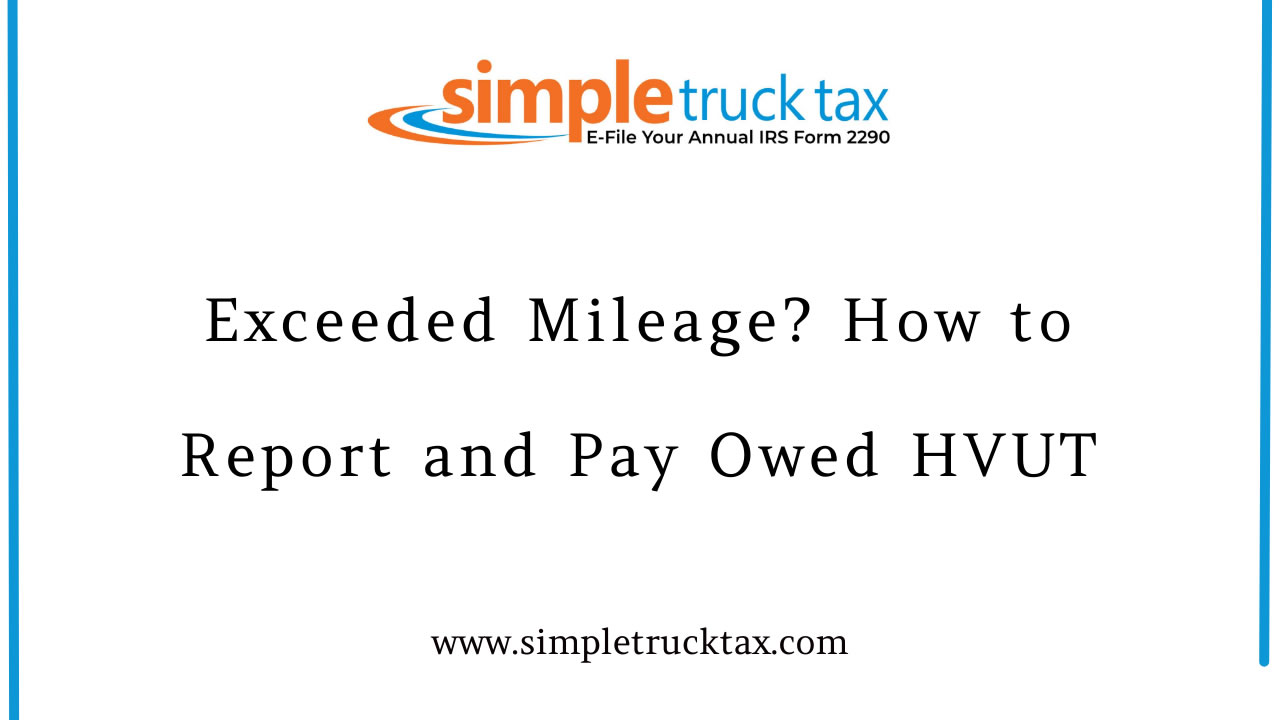
Exceeded Mileage? How to Report and Pay Owed HVUT
Owner-operators and fleet managers understand that ensuring Heavy Highway Vehicle Use Tax (HVUT) obligations are managed is of utmost importance. Heavy highway vehicles which are expected to travel less than the mileage use limit (5,000 miles for most, 7,500 for agricultural vehicles) must initially be reported as suspended vehicles on IRS Form 2290. This allows you to defer the tax payment.
Times change though. If the suspended vehicle ended up traveling more than the expected mileage limit over public highways during the tax period (July 1st to June 30th), it becomes a taxable vehicle and you have to report the change and pay the accrued tax on it. Not doing so is going to leave you facing some severe penalties and major problems regarding the registration of your vehicle.
Reporting Excluded Mileage: The Amended Form 2290
When a suspended vehicle exceeds the mileage limited for its use, you must amend Form 2290. This is not just a formality but is key for complying with IRS requirements, and the tax to be paid will be prorated by month in which the mileage limit was exceeded.
For this amendment procedure, you will require:
- Your Employer Identification Number (EIN).
- The Vehicle Identification Number (VIN) of the truck affected.
- The taxable gross weight of the vehicle.
- The First Used Month (FUM), which in this case is the month the mileage limit was exceeded.
Why Timely Reporting is Important
Failing to make prompt reporting of exceeded mileage usually brings a penalty for underpayment plus interest, and it will complicate renewals in the future for vehicle registrations since proof of HVUT payment (your stamped Schedule 1) is always required.
We will make it easy and hassle-free for you as your 2290 e-file service provider. Our platform helps you to complete amended Form 2290 with mileage exceeded scenarios in a few steps, taking into account proper prorated tax calculation while providing you with instant receipt of your updated Schedule 1. Don't let a change in mileage put your business at risk-report and pay your owed tax efficiently.